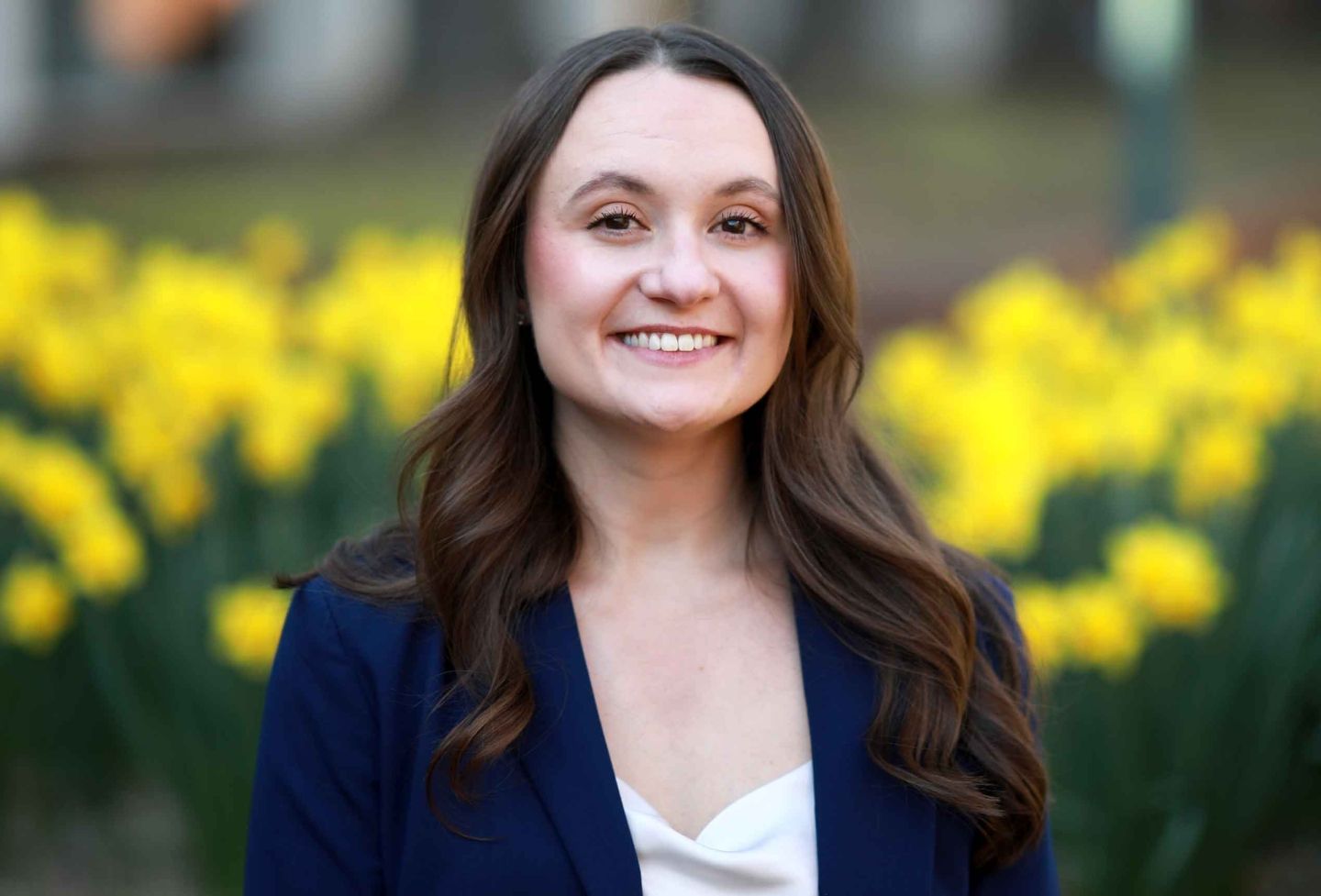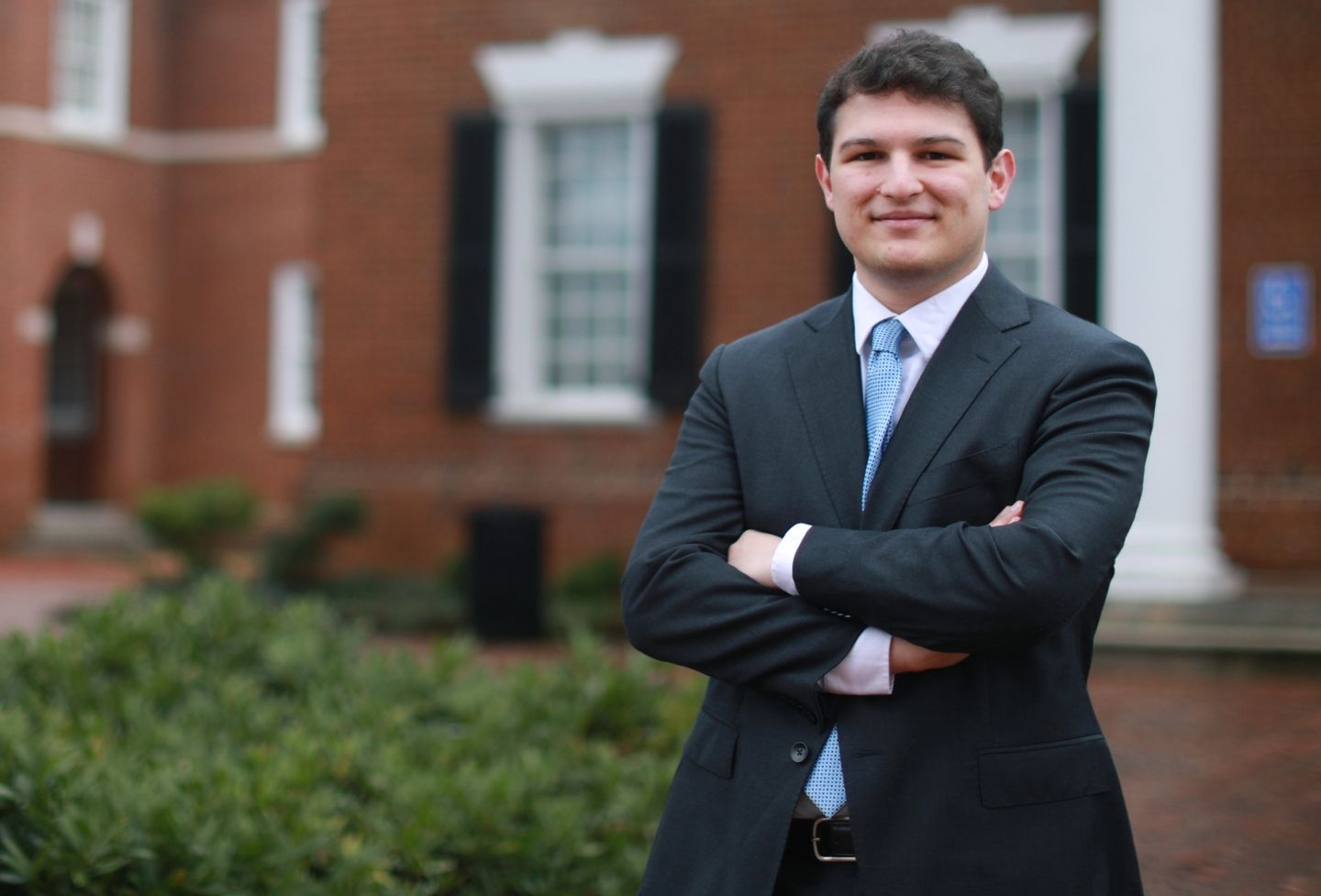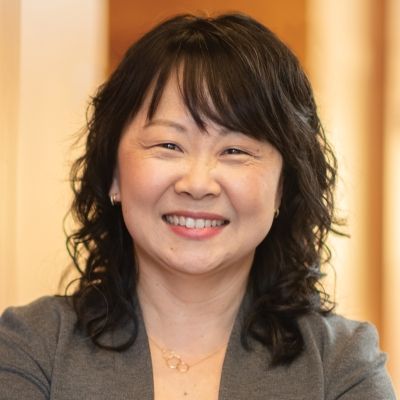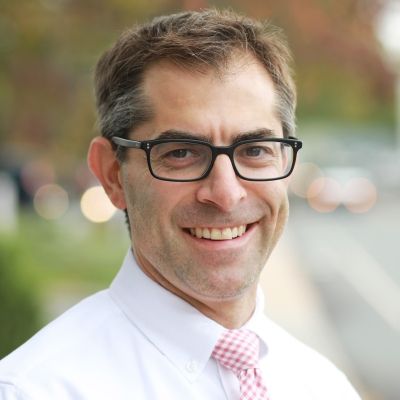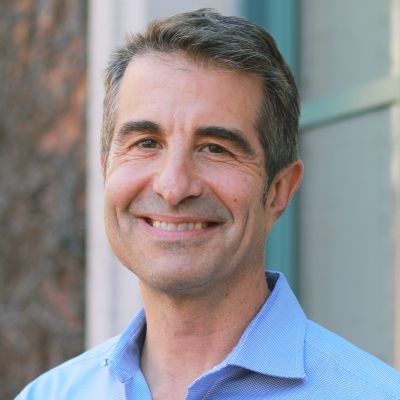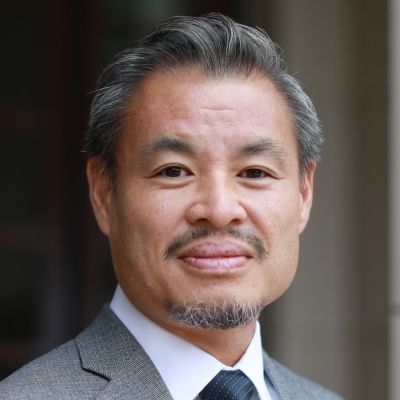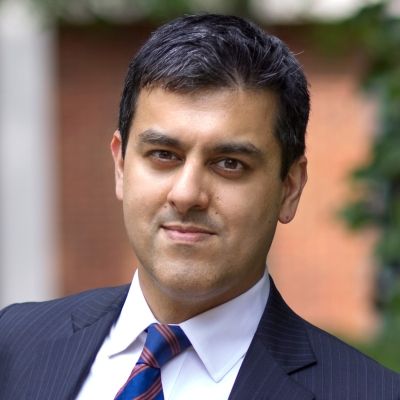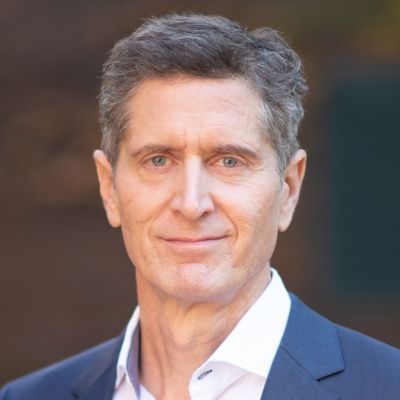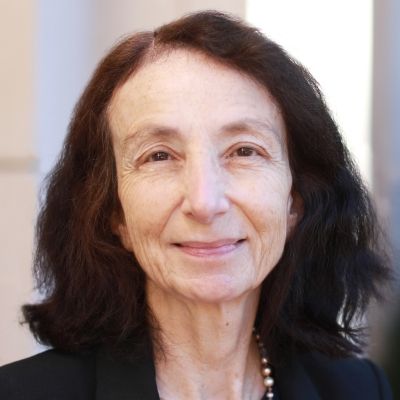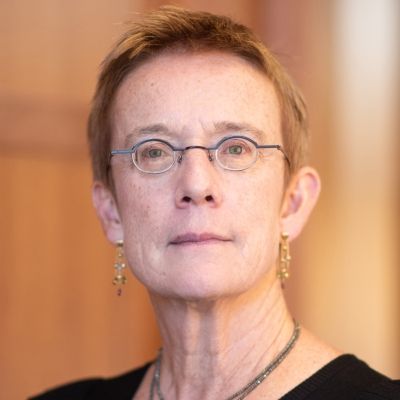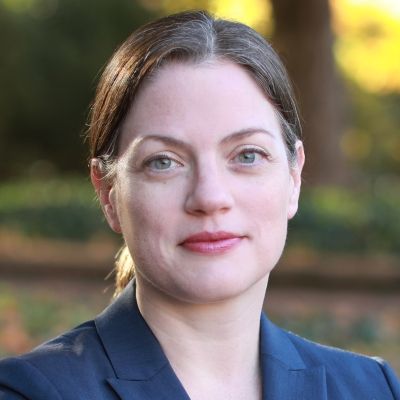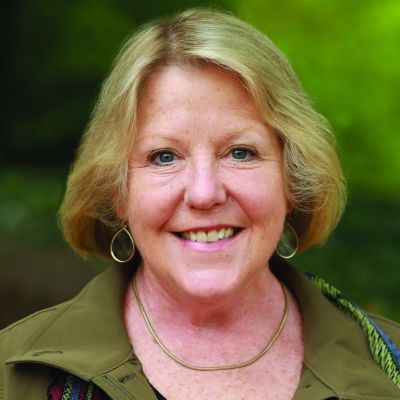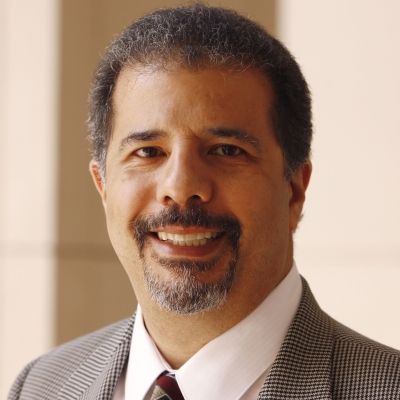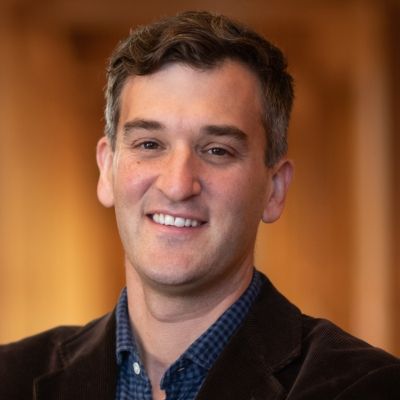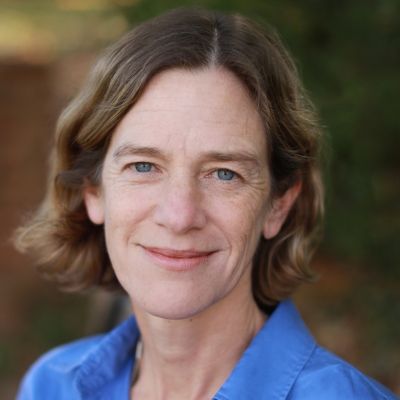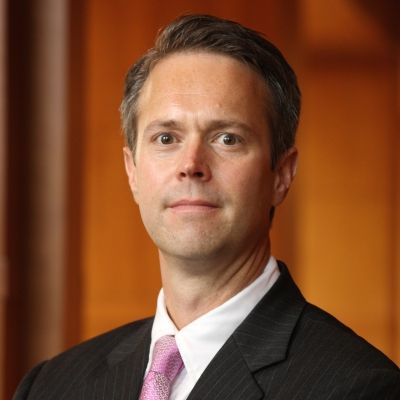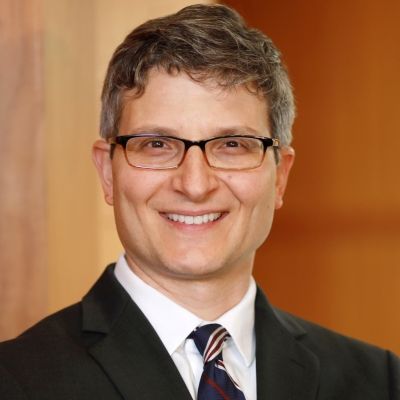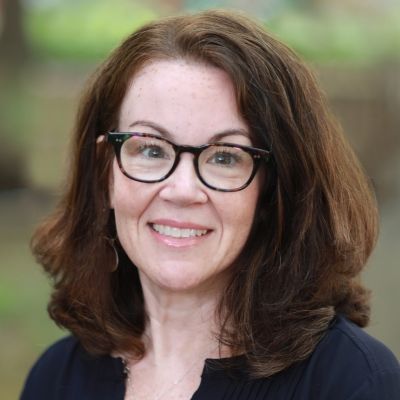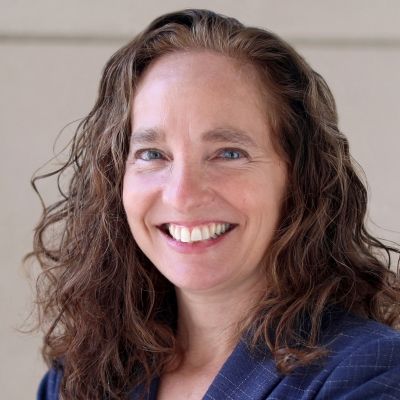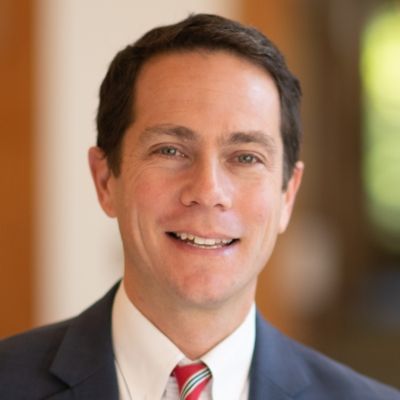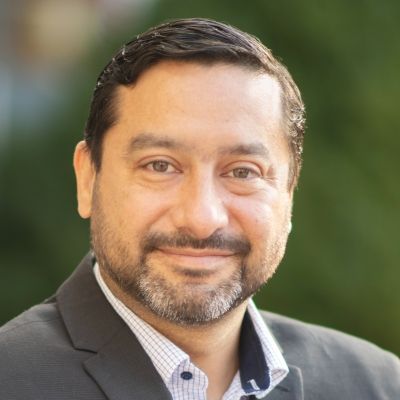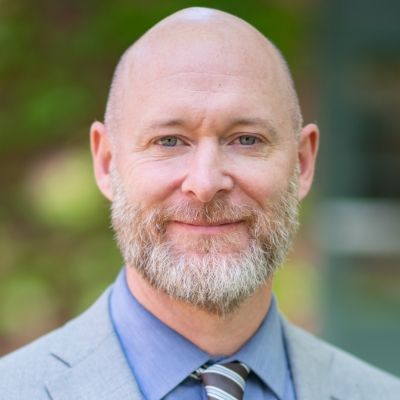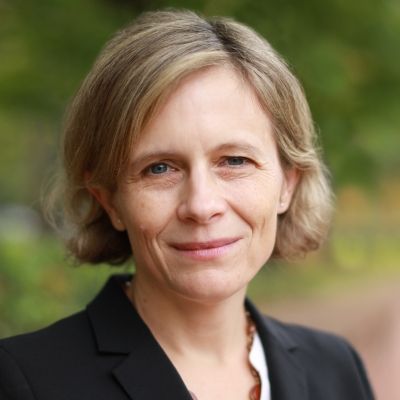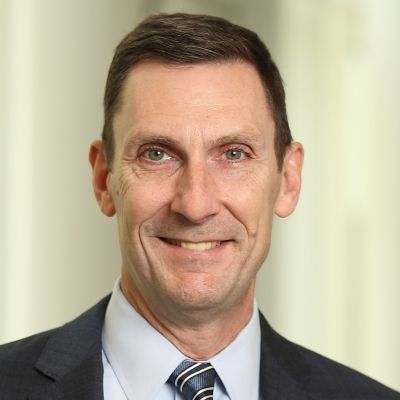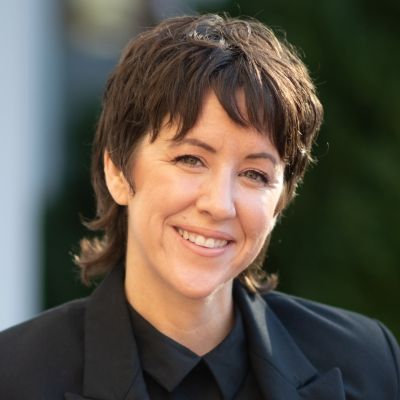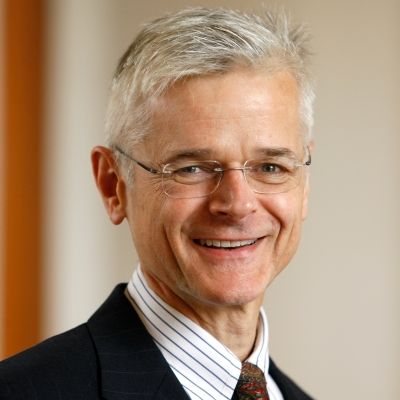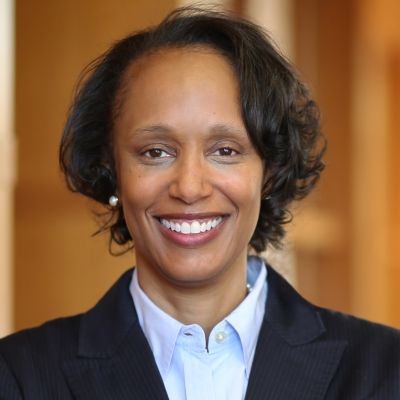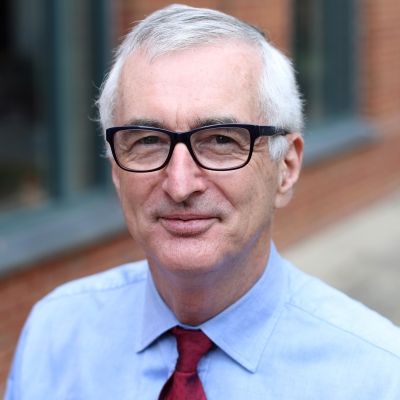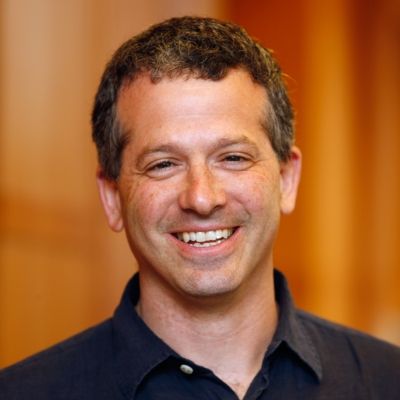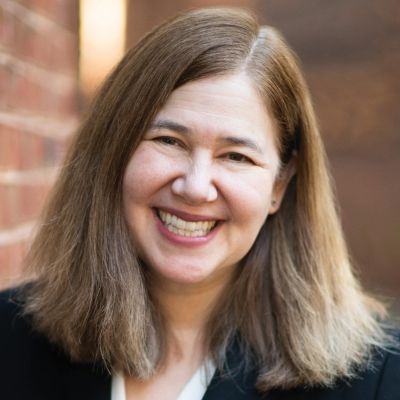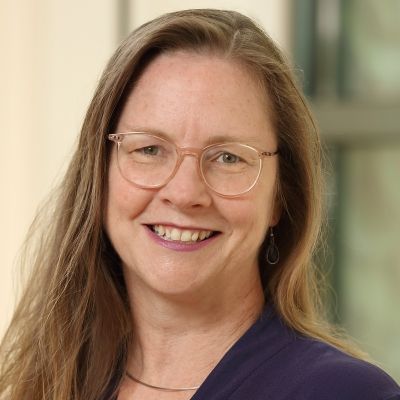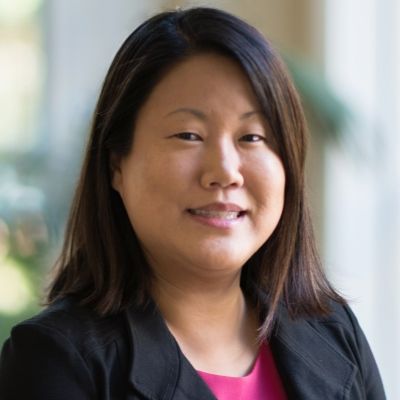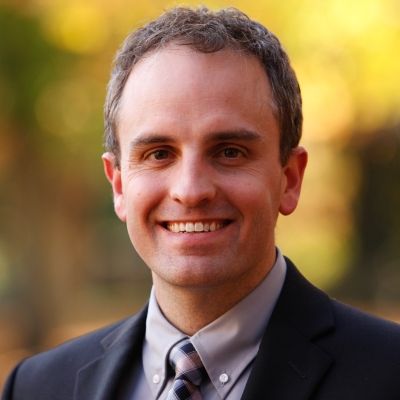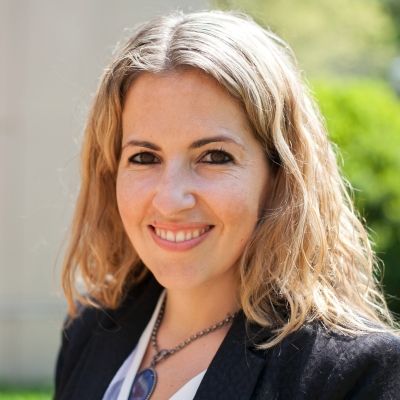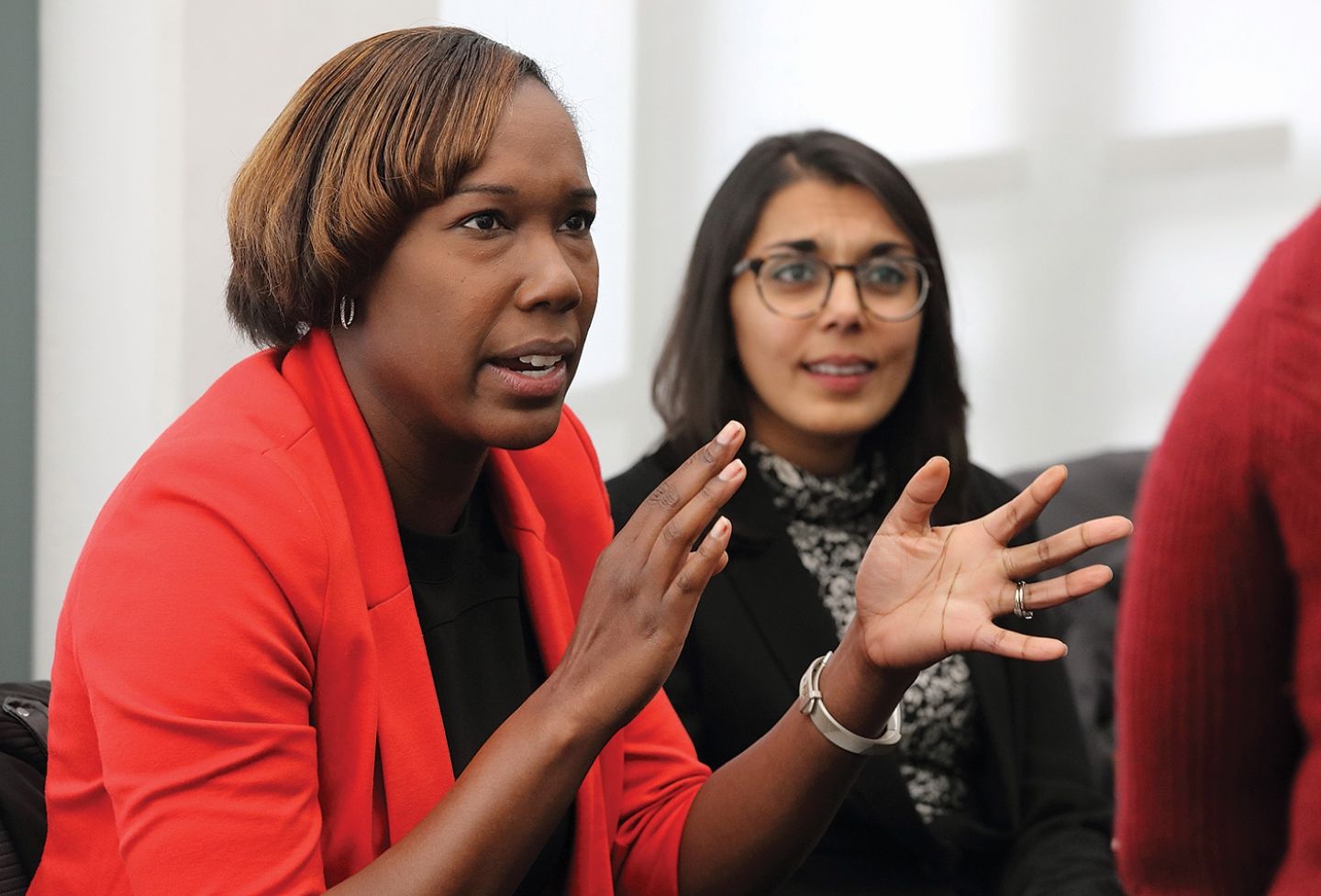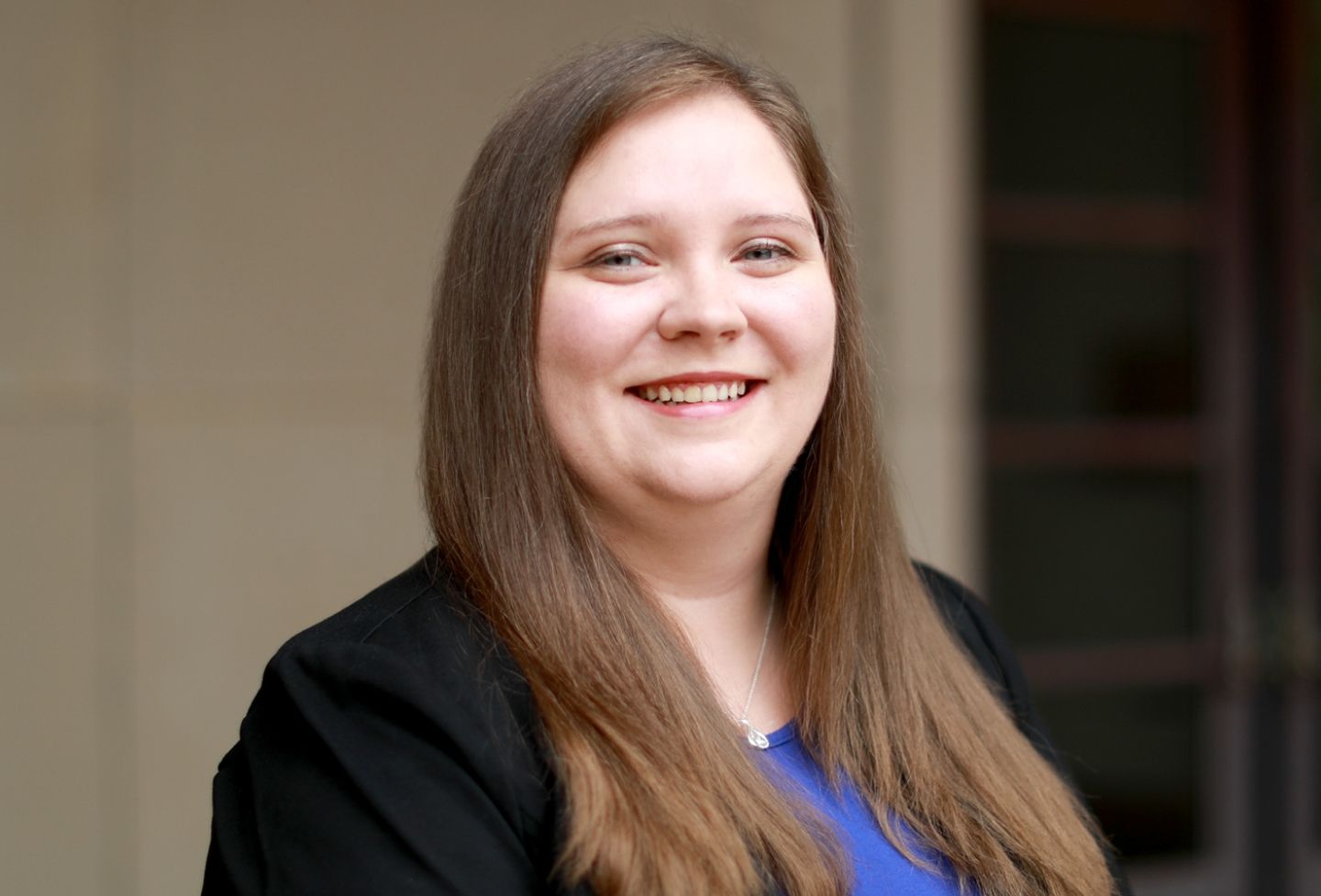About the Program
The Program in Law and Public Service is designed to provide a select group of students the opportunity to receive a tailored curriculum and intensive training that will prepare them for public service careers. Fellows are required to spend at least one summer working for a public service employer (a government agency or nonprofit organization). Each year, approximately 40 first-year fellows will be admitted to the program. Several slots will be held open for second-year students. Applications for first-year students are typically due in mid-October.
The program is directed by Professor Annie Kim, who formerly led the Law School’s Mortimer Caplin Public Service Center. Kim also worked for years as a litigator and in-house counsel representing Virginia school districts and local governments, and continues to consult on issues relating to local government law.
The Curriculum
Program fellows coming in as first-year students are required to take the course Law and Public Service in the spring of their first year. This seminar provides fellows a broad overview of public interest lawyering and career paths, exposure to practitioners, and a chance to build community within their cohort. Fellows use their second year to explore public service advocacy- and skills-based courses, clinics, and doctrinal courses related to their own practice interests. Finally, in their third year, fellows may opt to take a one-semester capstone seminar focusing on contemporary issues in public service offered in the spring. Additional course requirements include a clinic or externship (full-time or part-time) and at least 10 additional credits in courses that will assist fellows in their future public service careers. Courses are tailored to each fellow’s individual career goals and interests. Fellows will also complete a substantial research paper or final paper on a public interest topic of their choice.
Mentoring
Students in the program build mentoring relationships with public service faculty at the Law School through a semi-annual LPS Faculty Dinner Series, other small events hosted by faculty, and access to faculty office hours. All fellows are also encouraged to meet with the program director and core LPS faculty teaching the 1L and 3L courses to help them develop their academic and professional plans for public service work. Fellows are also assigned peer mentors within the program.
Community
The fellows participate in many events designed to build the LPS community, nurture individual professional and academic interests in public service, and introduce fellows to public service practitioners. These include “Serving Justice” meals with practitioners, book clubs, career-focused workshops, social gatherings, faculty and peer mentorship events, new and graduating fellows’ banquets, and the annual Shaping Justice public service conference.
Faculty Director(s)
Annie Kim
Assistant Professor of Law, General Faculty
Director, Program in Law and Public Service
Resident Faculty
Resident Faculty
Public service, state and local government law, litigation
Criminal procedure and criminal defense law
Juvenile justice, child advocacy, state and local government law
Legal aid, civil rights, impact litigation
Administrative law, civil procedure, computer crime, federal courts, national security law
Criminal law, evidence and procedure
Family law, trusts and estates, feminist jurisprudence, reproductive technology, and aging and the law
Criminal law, feminist jurisprudence and women's issues
Cybersecurity, foreign relations, international law and national security law
Innocence cases, DNA exoneration, criminal investigation
Race and law, constitutional law, employment discrimination
Criminal law, civil rights, race
Immigration and refugee law, judging, legal ethics, legal history
Business law, contract theory, mergers and acquisitions
Legislation, election law, law and economics, and direct democracy
Post-conviction relief, innocence, death-penalty cases
Civil rights, constitutional history and constitutional law
Tax law and policy, behavioral economics
Environmental and regulatory law, energy policy, climate change policy
International human rights law, Inter-American human rights system, business and human rights, transitional justice
Environmental law and climate change, administrative law
State, international taxation and policy
Civil rights, constitutional law, legal history, law and inequality
Constitutional law, antitrust and communications regulation, national security
Prisoner decarceration and reentry, civil rights, nonprofit organizations
Constitutional law, administrative law, election law
Education law, Civil rights, Affirmative action, Desegregation and integration, Race, Sexual discrimination and harrassment
Employment discrimination, civil rights and admiralty, civil procedure and international civil litigation
Separation of church and state, property, local government and land use
Advocacy and verbal persuasion, Foreign Intelligence Surveillance Act
Civil litigation, appellate advocacy, clinical education and community engagement
Special education, child advocacy and juvenile justice
Domestic relations and family law
Employment law and discrimination, contracts, contract theory, law and economics
Comparative law and human rights
About the Program and Selection Process
LPS was created in 2009 to provide a select group of UVA Law students the curricular foundation, specialized training, and community of faculty and peers that would assist them in pursuing careers in public service. Each year, the program admits approximately 35 first-year students and about five second-year students. Fellows typically plan to enter public service careers immediately after graduation. For more information on program curricular requirements, contact Professor Annie Kim. In addition, all fellows must work at least one full-time summer internship after the first or second year of law school for a public service employer.
Admission decisions will be based on past achievement, dedication to public service, and promise of future success. Brief interviews will be conducted in October and decisions will be made soon thereafter.
We encourage all interested students to apply, including those who may be underrepresented in public service practice, such as students of color, LGBTQ students, first-generation students and students with disabilities.
How to Apply
Submit the following materials in pdf format by Friday, Oct. 13, 2023 at 11:59 p.m. to Professor Annie Kim at @email:
- A resume (does not need to be in UVA Law school format);
- An unofficial copy of your undergraduate transcript (for 1Ls) or your law school transcript (for 2Ls),which will be reviewed for coursework rather than grades;
- A list of 2 references for people who know you well and can speak to your potential as an LPS fellow, including their names, titles, and contact information (i.e. former professor, mentor, coach, supervisor, co-worker);
- Answers to the following questions (maximum of 400 words for each):
- Tell us why you’re passionate about working as a public service attorney after law school. If you already know what kind of public service work you’d like to pursue, describe it. If you don’t know yet, explain your general interests and how you plan to determine your path.
- A number of factors can make it difficult to commit to a public service career, including financial constraints, familial expectations, and cultural norms among law students. What do you think are the most significant factors for you or other UVA Law students? How can we address them?
A decade after the birth of the Program in Law and Public Service at the University of Virginia School of Law, three alums who were there in the beginning share their career stories.
Meet some of the fellows in the Program in Law and Public Service.
Class of 2024

Salwa Ahmad
Hometown: Woodbridge, Virginia
Before UVA Law: Worked at global and public health nonprofits in the Washington, D.C. area, most recently at Population Services International
Public Service Interests: International human rights, global and public health, humanitarian crises, refugee law
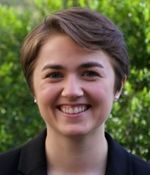
Grace Allaman
Hometown: Washington, Illinois
Public Service Interests: Immigration, human rights, voting rights, national security, foreign relations
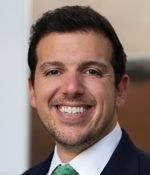
David Anders
Hometown: Darnestown, Maryland
Before UVA Law: Management consultant for federal agencies
Public Service Interests: National security, federal prosecution
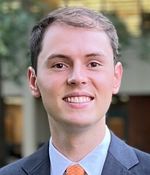
Ben Buell
Hometown: Richmond, Virginia
Before UVA Law: AmeriCorps college counselor in rural Virginia
Public Service Interests: Federal prosecution, national security, criminal appeals, crimes against children

Julia Jean Citron
Hometown: Baltimore
Before UVA Law: Worked on political campaigns at the presidential, congressional and local levels
Public Service Interests: Voting rights, racial justice, civil rights
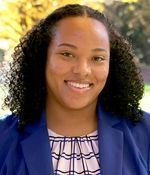
Lauryn Coleman
Hometown: Philadelphia
Before UVA Law: Paralegal at district attorney’s office looking at potential innocence cases
Public Service Interests: Public defense, innocence, death penalty, federal drug sentence reduction

Daniel Elliott
Hometown: Nashville, Tennessee
Before UVA Law: Legal assistant with the U.S. attorney’s office in Memphis, Tennessee
Public Service Interests: Government work, prosecution, criminal justice reform
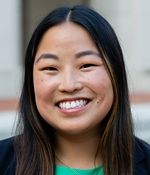
Ellen Florek
Hometown: Cleveland
Before UVA Law: Teacher for students with disabilities in Tulsa, Oklahoma
Public Service Interests: Child advocacy, public defense, education

Isabelle Foley
Hometown: Arlington, Virginia
Before UVA Law: AmeriCorps Fellow in Washington, D.C.; program manager at a pro bono international law firm
Public Service Interests: Public defense, juvenile justice, transformative/restorative justice
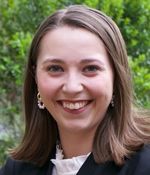
Rose Genaris
Hometown: Leawood, Kansas
Public Service Interests: Wrongful convictions, civil rights, public defense

Kiera Goddu
Hometown: Richmond, Virginia
Public Service Interests: Health justice, Indigenous justice, civil rights

Julia Goddard
Hometown: Lafayette, California
Before UVA Law: Youth offender parole hearings and other post-conviction work at home county's public defender office
Public Service Interests: Conditions of confinement litigation, parole and resentencing, public defense
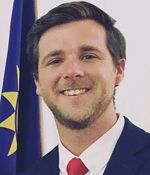
Zach Griffith
Hometown: Omaha, Nebraska
Before UVA Law: Financial analyst atAmpliFi Capital, Peace Corps volunteer in Namibia and corporate accounting/,finance and sales at Union Pacific Railroad
Public Service Interests: International law/,human rights
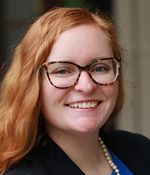
Abigail Hauer
Hometown: Baltimore
Public Service Interests: Gender-based violence, women’s and victims’ rights, progressive prosecution

Nina Herth
Hometown: St. Augustine, Florida
Before UVA Law: Fundraising and communications at the Washington Lawyers’ Committee for Civil Rights and Urban Affairs
Public Service Interests: Civil rights, public defense, criminal legal system reform
Io Jones
Hometown: New York
Before UVA Law: Paralegal
Public Service Interests: Reproductive justice; civil rights; youth justice

Molly Keck
Hometown: Annandale, Virginia
Before UVA Law: Legal Assistant in Detained Children’s Program at CAIR Coalition
Public Service Interests: Labor, immigrants’ rights, youth advocacy, transitional justice
Malcolm Law
Hometown: Eden, North Carolina
Public Service Interests: Public defense

Lauren Leonard
Hometown: Puyallup, Washington
Before UVA Law: Victim advocate at the King County Prosecutor’s office
Public Service Interests: Military, women’s rights, reproductive justice.
Bryanna Lindberg
Hometown: Galax, Virginia
Before UVA Law: Staff at an anti-human trafficking organization based in Perth, Australia
Public Service Interests: Public defense, human rights, immigration

Sabrina Mato
Hometown: Guines, Cuba, and Naples, Florida
Before UVA Law: Worked as a paralegal specialist at the Department of Justice in the Immigrant and Employee Rights Section
Public Service Interests: Immigration, civil rights, workers’ rights.

Swati Mehrotra
Hometown: Albany, New York
Before UVA Law: Teach for America in Philadelphia
Public Service Interests: civil rights, public defense, policing reform

Lauren McNerney
Hometown: Sykesville, Maryland
Public Service Interests: Civil rights, government advocacy, legal aid, public defense.

Austin Mueller
Hometown: Long Valley, New Jersey
Before UVA Law: Chancellor’s Fellow at the University of North Carolina; assistant English teacher in Mallorca, Spain; fundraising professional at the Center for Responsible Lending in Durham, North Carolina
Public Service Interests: Economic and consumer justice, housing, financial regulation, poverty law

Sheena Patel
Hometown: Westminster, Maryland
Before UVA Law: Nonprofit and federal sector internships during undergraduate career
Public Service Interests: Environmental law
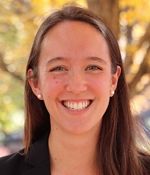
Meg Pritchard
Hometown: Charlottesville
Before UVA Law: Fellow at environmental nonprofits in Alaska, youth backpacking trip planner in Western Mass.
Public Service Interests: Environmental justice, climate change, water law
Riley Ries
Hometown: Vinton, Iowa
Before UVA Law: Legislative correspondent for U.S. Sen. Chuck Grassley, logistics officer in the U.S. Army Reserve
Public Service Interests: Tax law, white-collar prosecution, civil litigation, military justice
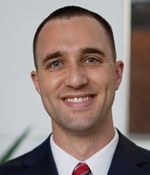
Chris Seiler
Hometown: Midlothian, Virginia
Before UVA Law: Air Force intelligence officer
Public Service Interests: Environmental law, consumer protection, voting rights

Lauralei Singsank
Hometown: Maui, Hawaii
Before UVA Law: AmeriCorps volunteer in Portland, Oregon
Public Service Interests: Government, economic and consumer justice

Keith Stone
Hometown: Los Angeles
Public Service Interests: Prosecution, criminal justice reform
Stephanie Turrentine
Hometown: Huntsville, Alabama
Before UVA Law: Peace Corps volunteer in St. Vincent and the Grenadines, AmeriCorps volunteer in Honolulu
Public Service Interests: Civil rights, housing, economic justice

Sabrina Surgil
Hometown: Pittsburgh
Before UVA Law: French interpreter for asylum seekers in Lesvos, Greece
Public Service Interests: Immigrant rights, removal defense, LGBTQ/trans rights, disability justice, abolition, movement lawyering

Grace Zipperer
Hometown: Richmond, Virginia
Public Service Interests: Refugee/immigration law, international human rights law, abolition
Class of 2023

Shivani Arimilli
Hometown: Austin, Texas
Public Service Interests: Environmental justice, sustainable city planning/strengthening local communities

Sujata Bajracharya
Hometown: Hastings-on-Hudson, New York
Before UVA Law: Diversity and inclusion consultant at a nonprofit
Public Service Interests: Workers’ rights, government service, immigration

Isaac Buckley
Hometown: Richmond, Virginia
Before UVA Law: Farmhand/carpenter, paralegal, middle school English teacher
Public Service Interests: Public defense, prison abolition, drug policy, labor law

Kevin Bui
Hometown: Fairfax, Virginia
Before UVA Law: Research tech for behavioral neuroscience lab
Public Service Interests: Health law, reproductive rights, government, criminal justice reform
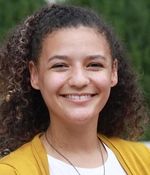
Whitney Carter
Hometown: Seattle
Before UVA Law: Peace Corps volunteer in Ukraine
Public Service Interests: Public defense

Scott Chamberlain
Hometown: Canton, Massachusetts
Before UVA Law: Project manager and implementation consultant at tech company, nonprofit project manager
Public Service Interests: Policy, politics, legislation

Marissa Coleman
Hometown: Cumming, Georgia
Public Service Interests: Government, prosecution, criminal justice reform

Julia Eger
Hometown: Altoona, Pennsylvania
Before UVA Law: AmeriCorps member at an elementary school in Pittsburgh
Public Service Interests: Civil rights, education, juvenile justice, child welfare

Amalia Garcia-Pretelt
Hometown: Charlottesville
Before UVA Law: Legal assistant at the Virginia Capital Representation Resource Center
Public Service Interests: Public defense

Warren Griffiths
Hometown: Monroe, Connecticut, and Colchester, Vermont
Before UVA Law: Worked in residential program for youthful offenders
Public Service Interests: Public defense, prisoners’ rights

Madeleine Hart
Hometown: Long Beach, California
Before UVA Law: English teacher in Long Beach and Germany
Public Service Interests: Public defense
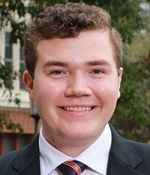
Spencer Haydary
Hometown: Rockford, Illinois
Before UVA Law: Taught K-4 special education in Chicago public schools through Teach For America.
Public Service Interests: Education, civil rights, housing, LGBTQ+ rights

Blair Schaefer
Hometown: Winchester, Virginia
Public Service Interests: Public defense, prison abolition

Alex Schechner
Hometown: Fort Lauderdale, Florida
Before UVA Law: Democratic Congressional Campaign Committee, Yard Signs = Votes
Public Service Interests: Civil rights, criminal justice reform, juvenile Justice

Helen Song
Hometown: Seoul, South Korea
Before UVA Law: Taught English literature and language, worked in human resources management in Seoul
Public Service Interests: Anti-trafficking, workers’ rights, reentry, immigration, economic justice

Ariana Smith
Hometown: Charlottesville
Before UVA Law: Fourth grade teacher in Greenwood, Mississippi, victim advocate in Charlottesville
Public Service Interests: Education law, disability rights, juvenile justice
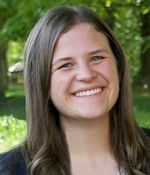
Cydney Swain
Hometown: Griffin, Georgia
Before UVA Law: Staff with a campus ministry at New York University
Public Service Interests: Civil rights; immigration; poverty law

Mary Talkington
Hometown: Fayetteville, North Carolina
Public Service Interests: Prosecution

Jordan Woodlief
Hometown: Greensboro, North Carolina
Before UVA Law: Worked as immigration paralegal
Public Service Interests: Immigration, indigent defense, legal aid
Class of 2022
 Ida Abhari
Ida Abhari
Hometown: Irvine, California
Before UVA Law: Taught English in Azerbaijan and monitored humanitarian aid projects in Iraqi Kurdistan
Public Service Interests: Human rights, international law, labor/employment law (and their intersections)
 Elizabeth Adler
Elizabeth Adler
Hometown: Voorhees, New Jersey
Before UVA Law: Worked on U.S. Sen. Claire McCaskill’s reelection campaign in St. Louis, Missouri, and as a speechwriter in Washington, D.C.
Public Service Interests: Reproductive justice, racial equity, criminal justice reform
 Abby Burke
Abby Burke
Hometown: Chesterton, Indiana
Public Service Interests: Criminal law, environmental law, federal government work
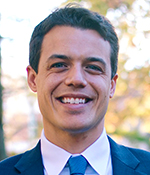 Tyler Demetriou
Tyler Demetriou
Hometown: Virginia Beach, Virginia
Before UVA Law: Consulting and business operations
Public Service Interests: Environmental law, environmental justice, civil legal services
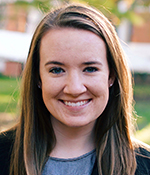 Caroline Elvig
Caroline Elvig
Hometown: Louisville, Colorado
Before UVA Law: Worked at the Colorado Office of the Alternate Defense Counsel doing indigent defense work
Public Service Interests: Civil rights, criminal defense
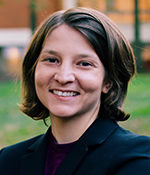 Taylor Fatherree
Taylor Fatherree
Hometown: Napa, California
Before UVA Law: Service industry; office work; Fulbright ETA in Colombia
Public Service Interests: Public defense and reform of the criminal legal system
 Elizabeth Harris
Elizabeth Harris
Hometown: Houston, Texas
Before UVA Law: Legal assistant at a local Texas district attorney’s office working on child protective service (foster care) and mental health cases
Public Service Interests: Child advocacy, with a focus on juvenile justice and foster car
 Christina Kelly
Christina Kelly
Hometown: Richmond, Virginia
Before UVA Law: Consultant for Ernst & Young
Public Service Interests: Racial and economic justice, civil rights, public defense, criminal justice reform, impact litigation
 Meredith Kilburn
Meredith Kilburn
Hometown: Fort Mill, South Carolina
Before UVA Law: Taught English in Hangzhou, China, and Hualañé, Chile; worked in Chicago as an AmeriCorps volunteer coordinating federal court help desks for pro se litigants
Public Service Interests: Civil rights, impact litigation, racial justice, women’s rights, international law
 Demi Kim
Demi Kim
Hometown: Seoul, South Korea
Before UVA Law: Worked as an English teacher in Korea for two years
Public Service Interests: Federal enforcement of employment or labor law
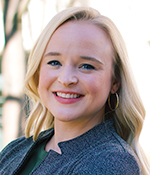 Cait Kutchi
Cait Kutchi
Hometown: Goshen, Kentucky
Before UVA Law: Paralegal on a civil litigation team at a federal law enforcement agency
Public Service Interests: National security law, military justice, prosecution, government
 Jordan LaPointe
Jordan LaPointe
Hometown: Ashburn, Virginia
Before UVA Law: College admissions counselor
Public Service Interests: Judge advocate generals, state and local government
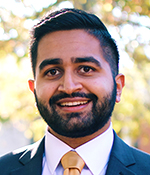 Robert Mathai
Robert Mathai
Hometown: Boston, Massachusetts
Before UVA Law: National security
Public Service Interests: National security, government
 Duncan Morrow
Duncan Morrow
Hometown: Pleasanton, California
Before UVA Law: Research and organizing for a labor union
Public Service Interests: Indigent defense, labor law
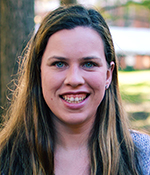 Kathryn Neuhardt
Kathryn Neuhardt
Hometown: Westford, Massachusetts
Before UVA Law: Worked in the video production department of the Boston Red Sox, editing and shooting video and running video boards during games
Public Service Interests: Human rights, international law, criminal defense
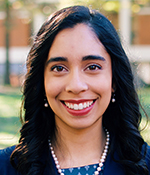 Sujaya Rajguru
Sujaya Rajguru
Hometown: Lakeland, Florida
Public Service Interests: Civil rights, racial justice
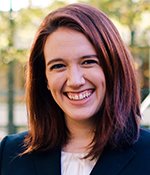 Eliza Robertson
Eliza Robertson
Hometown: Norman, Oklahoma
Before UVA Law: Worked in nonprofit development as a member of the Episcopal Service Corps
Public Service Interests: Health equity, mental health law, American Indian law
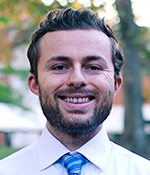 Eric Seifriz
Eric Seifriz
Hometown: Madison, Wisconsin
Before UVA Law: Substitute teacher PK-12, legislative policy aide, research assistant, camp counselor
Public Service Interests: Education law, public policy, government, environmental law, elections law
 Wes Williams
Wes Williams
Hometown: Roanoke, Virginia
Before UVA Law: Tech consultant for humanitarian nongovernmental organizations
Public Service Interests: Criminal justice reform, environmental protection, voting rights
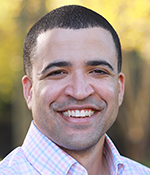 Chris Yarrell
Chris Yarrell
Hometown: Acworth, Georgia
Before UVA Law: Worked for five years in local government, most recently serving as policy advisor and director of external affairs at the New York City Mayor’s Office
Public Service Interests: Racial and economic justice, civil rights, public defense, criminal justice reform, impact litigation
Class of 2021
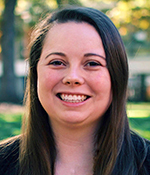 Caroline Bodie
Caroline Bodie
Hometown: Hampton, Virginia
Public Service Interests: Public defense
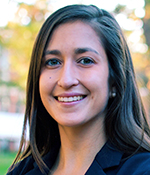 Ashley Cordero
Ashley Cordero
Hometown: Roanoke, Virginia
Before UVA Law: Paralegal
Public Service Interests: Prosecution, criminal justice reform
 Nathan Eagan
Nathan Eagan
Hometown: Fort Collins, Colorado
Before UVA Law: Managed the marketing department at WebstaurantStore, an online retailer
Public Service Interests: Criminal justice reform, restorative/transformative justice, prison and policing alternatives
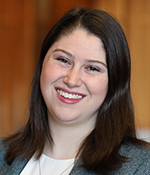 Jess Feinberg
Jess Feinberg
Hometown: Palo Alto, California
Public Service Interests: Civil rights, government
 Dominique Fenton
Dominique Fenton
Hometown: Santa Barbara, California
Before UVA Law: Tribal court judge, criminal defense investigator, high school English teacher
Public Service Interests: Indigent defense, civil rights, Indigenous justice

Cody Fisher
Hometown: Nashville, Tennessee
Before UVA Law: Campus ministry; business analyst at Capital One
Public Service Interests: Public defense
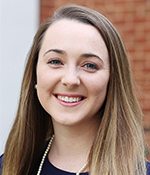 Lindsay Gorman
Lindsay Gorman
Hometown: Raleigh, North Carolina
Before UVA Law: Director’s financial analyst at the Consumer Financial Protection Bureau in Washington, D.C.
Public Service Interests: Government, public policy, public integrity, voting rights
 Hayley Hahn
Hayley Hahn
Hometown: Fairfax, Virginia
Before UVA Law: Fulbright student at McGill’s Centre for Research on Children & Families researching social service provisions and legal protections for Indigenous children in Canada and the United States Public Service
Interests: Civil rights, racial justice, Native American rights, reproductive justice, gender justice, impact litigation
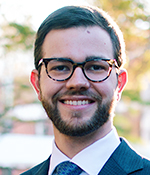 Sawyer Hicks
Sawyer Hicks
Hometown: Longmeadow, Massachusetts
Before UVA Law: Paralegal at a Baltimore-based nonprofit that provides civil legal assistance to Maryland’s incarcerated population
Public Service Interests: Indigent defense, criminal legal reform
 Kristen James
Kristen James
Hometown: Massapequa, New York
Public Service Interests: Environmental justice, land conservation, climate change law and policy
 Katharine Janes
Katharine Janes
Hometown: Mount Pleasant, Michigan
Public Service Interests: Juvenile justice, criminal justice reform, social policy, government
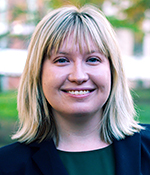 Hannah Keefer
Hannah Keefer
Hometown: Ridgeville, South Carolina
Before UVA Law: Office assistant for the National Society of The Colonial Dames of America in the State of South Carolina; museum interpreter and marketing coordinator for The Powder Magazine, a colonial history museum in Charleston, South Carolina
Public Service Interests: National security, human rights, international law, immigration
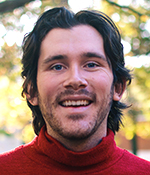 Jeremy Kemp
Jeremy Kemp
Hometown: Sarasota, Florida
Public Service Interests: Environmental law generally, with particular interest in climate justice, public lands, and natural resource issues
 Kyle McGoey
Kyle McGoey
Hometown: New Orleans, Louisiana
Before UVA Law: Marketing strategist for a tech startup in New York
Public Service Interests: Civil liberties, policing reform, foreign policy and national security
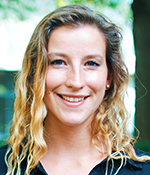 Megan McKinley
Megan McKinley
Hometown: Colorado Springs, Colorado
Public Service Interests: Criminal justice reform, combating human trafficking
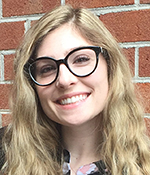 Gia Nyhuis
Gia Nyhuis
Hometown: Boulder, Colorado
Before UVA Law: Taught English in Quito, Ecuador, through WorldTeach
Public Service Interests: Public defense, immigration
 Nooreen Reza
Nooreen Reza
Hometown: Wise, Virginia
Before UVA Law: Paralegal case handler at Legal Aid Society of New York Housing Help Program in Brooklyn
Public Service Interests: Legal aid, community lawyering, housing justice, economic justice, public benefits
 Eliza Schultz
Eliza Schultz
Hometown: Brooklyn, New York
Before UVA Law: Researched disability and anti-poverty policy at the Center for American Progress
Public Service Interests: Workers’ rights, civil rights, economic justice
 Perrin Tourangeau
Perrin Tourangeau
Hometown: Denver, Colorado
Before UVA Law: Worked at a hike-in backcountry hotel in Glacier National Park for a summer before working as a paralegal intern and teaching LSAT preparation classes
Public Service Interests: Indigent defense, civil rights
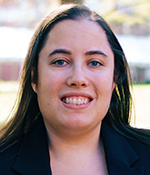 Carly Wasserman
Carly Wasserman
Hometown: Reisterstown, Maryland
Before UVA Law: Taught high school social studies in Baltimore City; worked as an academic coordinator at Johns Hopkins School of Medicine
Public Service Interests: Child advocacy, education law, juvenile justice, civil rights
 Jolena Zabel
Jolena Zabel
Hometown: Hastings, Minnesota
Before UVA Law: Worked at Kakenya’s Dream, a nonprofit organization based in rural Kenya focused on transforming communities through girls’ education and empowerment
Public Service Interests: International human rights
Third-year student Grace Zipperer is the University of Virginia School of Law’s first recipient of the Immigrant Justice Corps’ Justice Fellowship, through which she will advocate for asylum-seeking children.
2023-24 Student Board
- Co-Presidents: Ellen Florek and Molly Keck
- Communications Chair: Salwa Ahmad
- Outreach Chairs: Nathaniel Glass and Shelby Wolfe
- Membership Chairs: Anna Harvey and Delaney Tubbs
- Alumni and Networking Chair: Alyssa Marshall
- Shaping Justice Chairs: Noa Jett and Rohini Kurup
- Academics Chair: Simeon Daferede
Kara Hafermalz, a 2023 graduate of the University of Virginia School of Law from Dawsonville, Georgia, who volunteered 468 hours over the past three years, received the school’s annual Pro Bono Award at graduation.
Events
NoGI Dinner
Saturday, Sept. 9, 2023, 5:30-7:30 p.m., The Park
For 2L and 3L LPS fellows who identify as “NoGI,” come on out to The Park for dinner and reconnecting with your friends!
Program in Law and Public Service Information Session and Cupcake Social
Wednesday, Sept. 13, 1-2 p.m., Purcell Reading Room
Hear about what the LPS program and community have to offer, meet LPS fellows and director Professor Annie Kim, and design your own public service cupcakes.

